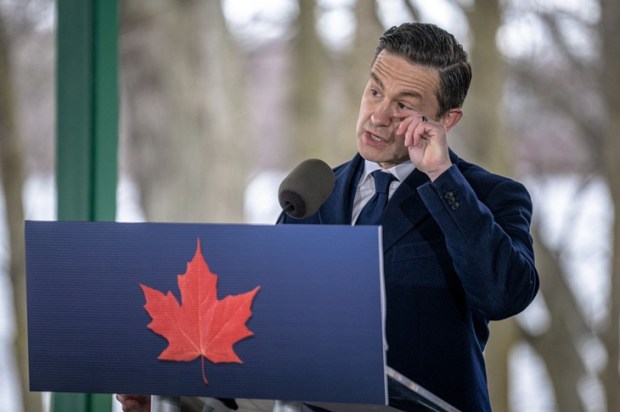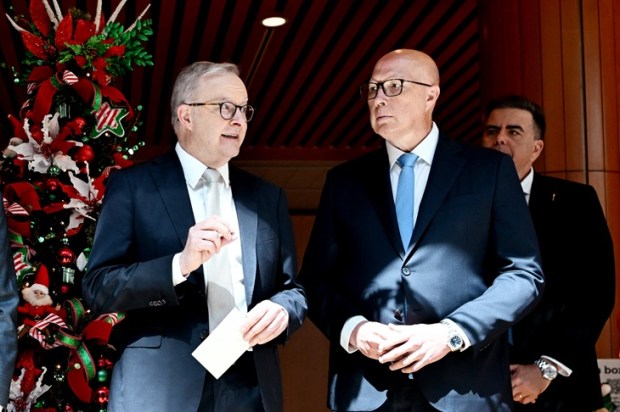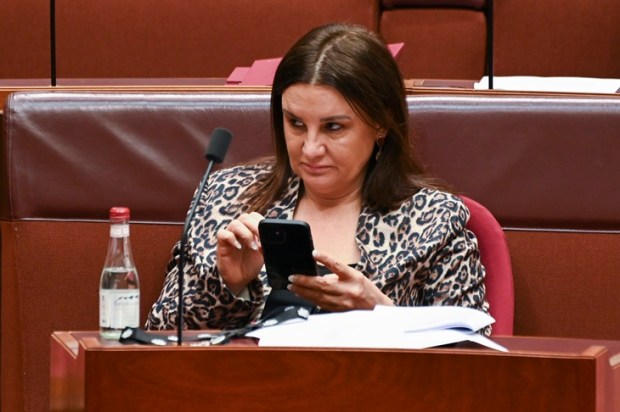James Allan is an academic unicorn – an openly conservative professor at a prestigious Australian university. In this wide-ranging conversation, James paints a picture of a tertiary sector that simply isn’t making the grade.
Will Kingston: James, imagine a bright kid has just finished high school and comes to you for advice. He doesn’t want to do anything that legally requires him to get a university degree. Would you nonetheless recommend that he goes to university?
James Allan: It’s a hard question. We live in a world of credentials and Australia is about the worst of the ‘credentialed places’ so, in a sense, going to university is providing you with a credential that opens doors. But I do think people who went to university 20 years ago have no clue what they are like today. Whilst it’s very difficult to get to the top of any career without going to university (entrepreneurs being a notable exception), you must go in with your eyes open.
WK: What exactly should that student have his or her eyes open for?
JA: Viewpoint diversity, or the number of conservative academics in universities, is collapsing. We know this from looking at the donations to political parties – it’s public information in the US. Just look at places like Yale Law School or Harvard, and the numbers are getting more and more skewed. Outside of the Ivy League it’s even worse.
And it’s just as bad in Australia. There are whole departments [that are exclusively left-leaning]! Do you think there are many supporters of Tony Abbott or Peter Dutton or the Coalition more generally in a Women’s Studies department, or an Aboriginal Studies department, or a Sociology department? Even Law is massively skewed. You’ll find the odd tax lawyer who sits in the closet and votes Coalition, and that’s largely it. Heck, you can count the number of law professors in this country who teach constitutional law and are against the Voice on one machine operator’s hand. And we have over three dozen universities.
WK: Is this really a problem? What’s the ‘first principles’ argument ideological diversity amongst academics?
JA: The old-fashioned idea was, you go to university and you get exposed to ideas that you don’t agree with and that you’ve never encountered before. This is the John Stuart Mill view of free speech – you get closer to the truth via a cauldron of competing ideas. Today, many people on the left just do not accept that. They think some views have to be ruled out because people are weak and stupid, and if they hear those ideas they’ll inevitably be seduced by them. Mill thought that through hearing views you don’t agree with, you will strengthen your own arguments even when you conclude you were correct all along.
The other reason is that the so-called ‘expert-class’ has shown itself to be completely useless of late. They’re getting everything wrong. I was a huge ‘lockdown-skeptic’, and the results coming out of Sweden have demonstrated that the expert doctors were to a large extent useless. But even worse, whilst they were being useless, they were simultaneously trying to shut down the views of genuinely credible people like Sunetra Gupta or Jay Bhattacharya. Just look at Sweden’s cumulative excess death tally since the start of the pandemic till now. Better than ours and the gap is widening by the day. And Sweden did not close any small businesses or schools or weaponise the police or censor unfashionable sceptical views.
WK: Does the grants process exacerbate this problem?
JA: Absolutely. You have this big machinery in universities. If you’re a historian or if you’re a political scientist, you are judged by grants. Now think about how crazy this is! You wouldn’t buy a car based on which car manufacturer got the most government money. You would think, ‘My God this car manufacturer needs huge dollops of taxpayer aid!’
And the only people who get promoted are people who are good at getting grants. So if you want to write in favour of traditional marriage, say, or in any sort of conservatively leaning way, you have virtually zero chance of getting a grant. This allows universities to say to a conservative that they’re not promoting you because you aren’t being awarded grants, not because you are conservative. The roadblock is indirect, not direct. One of the things we need to do outside of the ‘hard sciences’ is just end all grants. They are inefficient, deliver near-worthless results and hurt only one side of the political divide. You could save a fortune and it wouldn’t affect the quality of universities at all.
WK: A further problem appears to be that most universities aren’t just ambivalent towards hiring lecturers who have had ‘real world experience’, they are actively hostile to the practice. Fair?
JA: In law, I’ve always thought you want some people with ‘practitioner experience’ and that’s what law schools used to be like. They’re still like that in a lot of the top US and Canadian schools. The problem here is the ‘one-size-fits-all’ on steroids approach. Australia is terrible in this regard. Everything has to run on the ‘science model’, and in the science model, all the people who are at the top have doctorates. It doesn’t matter to university administrators that law is different and that you have the smartest law students going off to clerk at the High Court or become top barristers or win Rhodes Scholarships. If any of these people want to come back and teach law they still have to get a doctorate. Not true in North America. True here. This is credentialism gone mad. Australia is crazy in this way in how they expect a law school to run the way a physics department does.
WK: This ‘one-size-fits-all’ approach is driven by administrators, so let’s examine them. You once said that a moderately numerate Year 11 student could do the job almost as well as most of Australia’s Vice-Chancellors. Expand.
JA: I stand by that! Australia has the highest-paid university Vice-Chancellors in the world. VCs at the top-eight Australian Unis are making upwards of $1.4 or $1.5 million. The army of DVCs make over half of that again. Don’t you think it’s weird that our VCs are making double or triple what the President of Harvard is making? We have these enormous bureaucracies that are incredibly highly paid and they enforce this rigid bureaucratic and for that matter political orthodoxy. For example, I think ‘welcome to and acknowledgement of country’ rituals are patronising, condescending virtue-signalling. Full stop! No one ever says, ‘I stole your land so come and take my house!’ But, you simply couldn’t get a uni administration job unless you’re prepared to mouth those words on a daily basis. But hey, if you don’t stand up for the national anthem, you’ll probably be applauded for taking a stand… Well not literally. You get my point!
WK: You’ve been teaching university students since 1989. How have they changed over that time?
JA: I’ve taught all over the world, and something which we often forget is how different university life in Australia is compared to other parts of the Anglosphere. In the US, Britain, Canada, and even New Zealand, the vast majority of people send their kids to a university away from their home. In Canada, if you grow up in Toronto, odds are you go to university somewhere else. In Britain, you leave high school and you move into residence somewhere and receive the benefit of learning what it’s like to be an independent person. In Australia, if you’re from Sydney and you’re a top student, you go to a certain university, and if you’re not quite top you go to another, and then work your way down the hierarchy from there.
So, in addition to not giving students that broader life experience, it means there’s no competition between say, the University of Melbourne and the University of Sydney and the University of Queensland for the best students. That’s a real problem.
However, an indirect benefit of this is that the sort of radicalisation of the student body that has taken place overseas is not nearly as bad in Australia because all the students are living at home and just commuting in and out. They commute in for a couple of hours each day and then go home. It’s just harder to radicalise students who are rarely on campus! But by and large, I think it’s a shame. There is no campus life. If any of my students go on exchange for six months to North America or Britain they come back and say how much fun they had, and how different that it was to Australia. It doesn’t need to be this way.
WK: And I imagine Covid has just made this phenomenon even worse?
JA: Well, yes, the thuggish and illiberal governmental response to Covid made near on everything worse, including life on universities. It’s very clear from studies and surveys that students don’t like online learning and they don’t learn anything. They won’t turn their microphones on half the time. Zoom is a disaster for universities. It’s accelerated grade inflation, cheating, and lot more negative trends. And a separate but related point is students are no longer interested in learning, they are interested in the marks. And in a way, I don’t blame them. We put a lot more pressure on kids regarding jobs, and specifically the need for a job or internship whilst they are still studying.
I speak to kids on their first day of university who are already worried about what internship to get, or what grad role to get. It’s a prerequisite to a lot of the grad schemes now [an internship], but I think it would be better for students if we encouraged them to put less time into outside jobs and work and put more time into their studies. But that’s a hard message to sell when law firms are hiring students in their first year of university. And the funny thing is that a lot of the time these firms are getting students who aren’t terribly well-educated – in Australia (not Canada or Britain or the US) we cover noticeably less content because so many students have near-on full-time jobs on the side and so expectations of what they can read have to go down. And then the law firms complain about the quality of graduates. Look, it’s partly their fault!
WK: How would you fix the tertiary sector in Australia?
JA: Well the first thing I would do is get rid of grants for everything but the hard sciences. Do this and you completely defund research exercises that cost tens and tens of millions of dollars and just produce often meaningless information. A grant is an input. It’s money you get to produce something. What matters is the output! In Australia, we measure the input, not the output. Then I’d eliminate or defund the entire ‘Diversity, Equity and Inclusion’ bureaucracies from universities as some US States now are. These are ‘bullsh*t’ jobs that make universities worse, not better, and that deal in group rights and equality of outcome, not equality of opportunity.
Once I had sorted out that ‘low hanging fruit’, I’d send my entire fictional Liberal party room to Florida and tell them to copy what Ron DeSantis is doing in terms of standing up in the battle of ideas against illiberal Woke types. We need more courageous leaders like that in Australia, both inside and outside of universities.
WK: James, thanks for speaking to The Spectator Australia.
JA: Thanks Will.
James Allan holds the oldest-named chair at the University of Queensland. His most recent book is titled, ‘The Age of Foolishness: A Doubter’s Guide to Constitutionalism in a Modern Democracy’. He also is proud to write weekly for the Spectator Australia.
Will Kingston is the host of The Spectator Australia’s Australiana podcast.

























